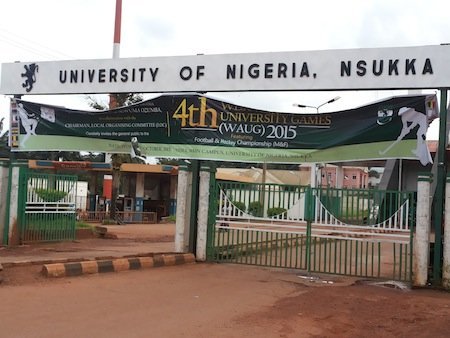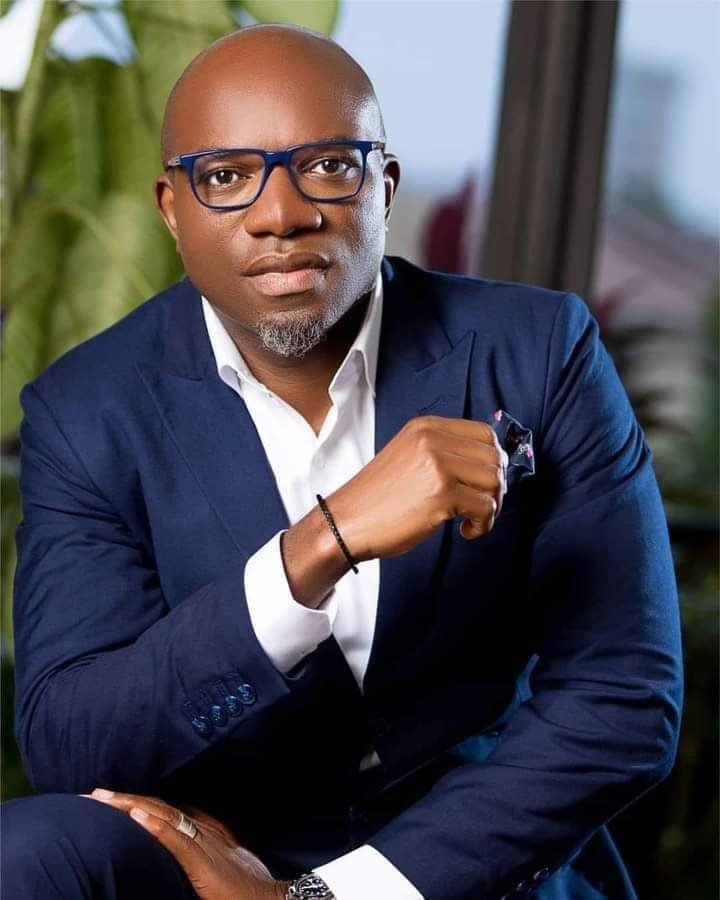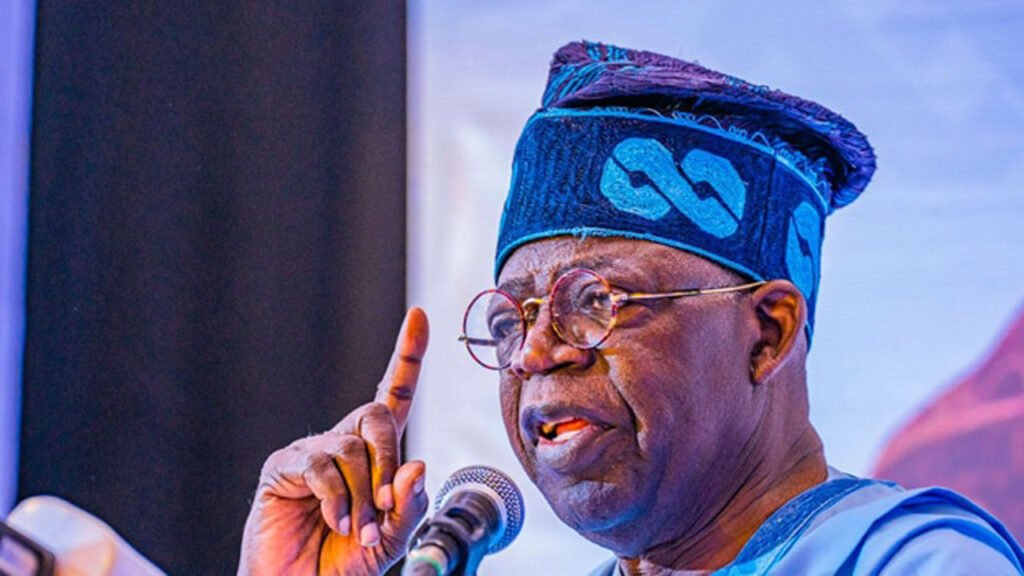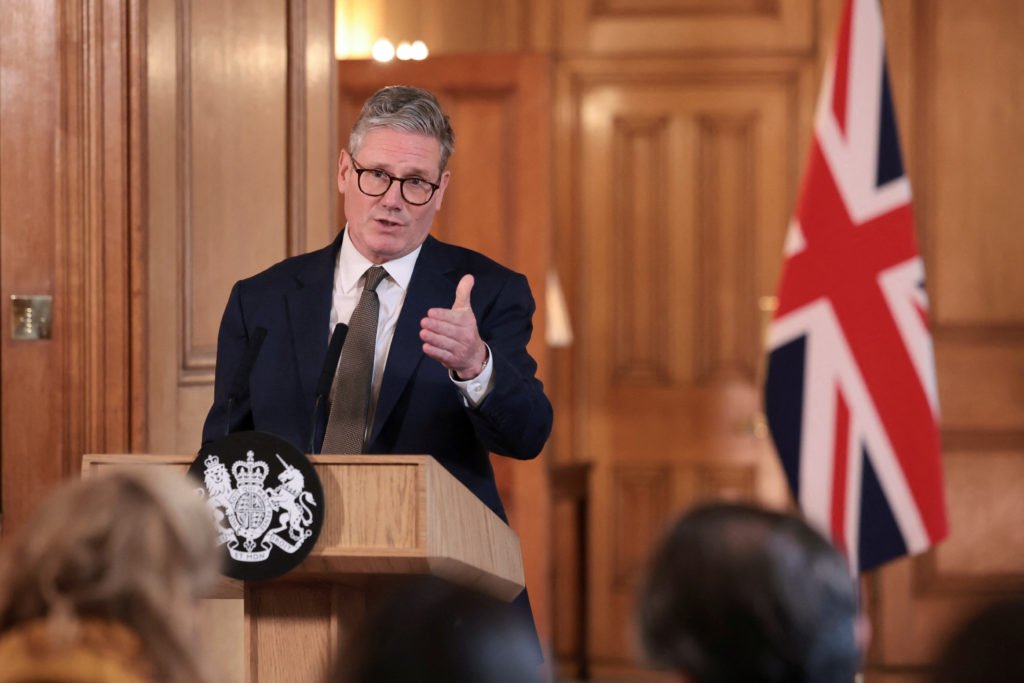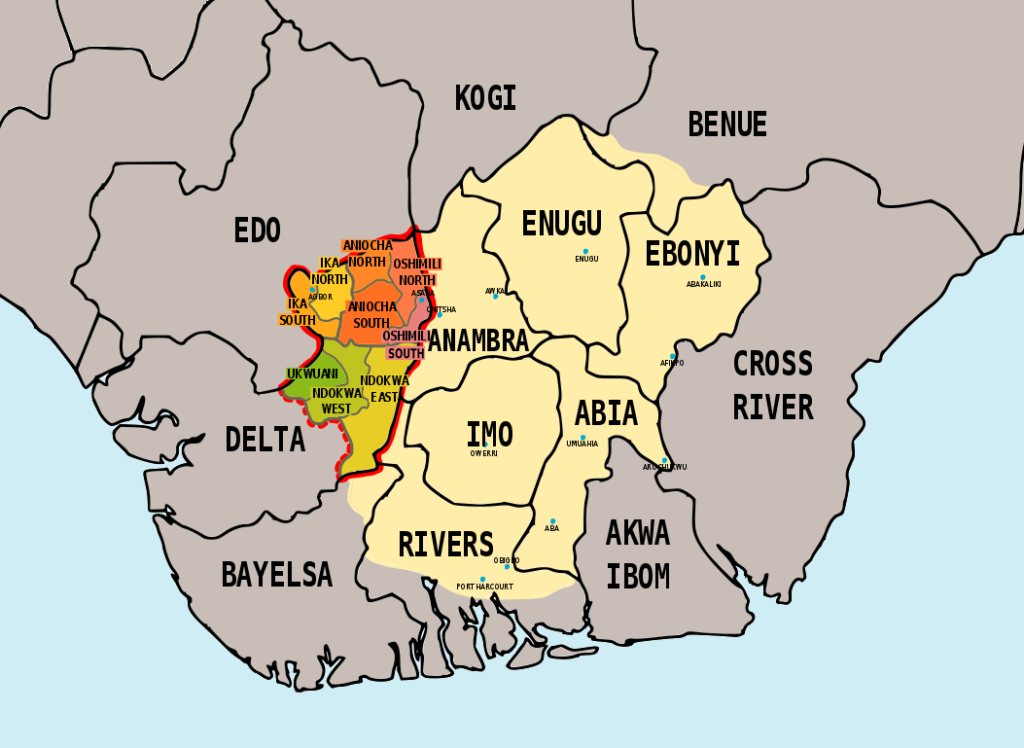
Disclaimer
This essay is the product of extensive research, personal observations, and candid conversations with students, alumni, and a select number of lecturers who requested anonymity due to fears of institutional reprisal. While every effort has been made to verify facts through publicly available news reports, social media documentation, and historical records, the conclusions, interpretations, and assertions herein are solely those of the author. The University of Nigeria, Nsukka (UNN), its governing bodies, and affiliated institutions have not officially endorsed or contributed to this work. Attempts to engage university authorities for comment were met with silence or deflection, a reality that speaks volumes in itself. Pseudonyms have been used to protect the identities of students and staff who shared their experiences. This is not an indictment of individuals, but an unflinching examination of systemic failures.
A Note to the Reader
To the students of UNN and universities across Alaigbo who trusted me with your stories, this essay is your megaphone. To the administrators who declined to respond, this essay is your mirror.
I make no claim to neutrality. What you are about to read is a collection of frustration, hope, and urgency stitched together from midnight WhatsApp voice notes, tearful hostel video visits, and the defiant laughter of students boiling noodles over open fires. It is unapologetically subjective, because suffering is not a topic of debate topic.
If you are an alumnus, policymaker, or leader offended by these words, I offer no apology only an invitation: Prove me wrong. Open your checkbooks, not your mouths. Fund a borehole at UNN, renovate a classroom at Enugu State University, or sponsor a scholarship at Nnamdi Azikiwe University. Let your generosity drown out your grievances.
To the critics who ask, “Why air our dirty linen?” I counter: A wound ignored festers. This essay is a call to stitch, not to shame.
—AI-KO
The road to Nsukka still haunts me. It was Saturday June 12, 2019, and I sat in the backseat of a rented SUV, gripping the door handle as our vehicle lurched through craters masquerading as a federal highway. With me, we’re friends and colleagues, all going as guests of a friend, a renowned philanthropist we were en route to the University of Nigeria, Nsukka (UNN), where he would be conferred with an honorary doctorate for “exemplary service to humanity.” The more we drove towards Nsukka, the more the road disintegrated, as if protesting the farce ahead. What kind of leader abandons the artery to his people’s intellectual heart? I seethed.
But nothing prepared me for UNN itself.
When we arrived, I expected the hallowed grounds I’d read about in Achebe’s and many other essays and conversations—the “Harvard of Africa,” where cobblestone paths once echoed with debates between future renowned scientists and novelists. Instead, I stepped into a dystopia. The Various convoys, polished to a military sheen for the ceremony, rolled past students queuing like specters at a borehole, their buckets clattering in the dust. A banner above them flapped tattered edges: “UNN: Restoring Dignity Since 1960.”
I slipped away as the ceremony began. For hours, I wandered, a ghost among ghosts. I touched the cracked walls of the Faculty of Arts, where water stains bloomed like funeral flowers. I stood outside Eni Njoku Hostel, where a boy with a wry smile offered to sell me “VIP bucket water” for double the price. I met a lecturer in a frayed blazer who whispered, “We haven’t been paid for months,” before scurrying to a makeshift kiosk to buy garri for lunch. The air smelled of burning plastic; students huddled around open fires, their laughter sharp with defiance.
When I returned to the auditorium, my friend was beaming in his doctoral regalia, surrounded by various dignitaries exchanging hollow pleasantries. I couldn’t bring myself to join the photos. How could I smile while the rot seeped into my bones? That night, I wrote in my notebook: “Today, I witnessed a funeral. Who will mourn this university?”
For years, I carried that grief in fragments jotted notes, conversations with alumni, rage-filled rants to my friends who schooled there, who’d nod and say, “Write it now. Someone must.” But other things came up and preoccupied me. Who was I, a non-academic, not even an alumni, to dissect UNN’s corpse?
Then, on the 13th of March 2025, our WhatsApp group Admin, Barr. Nwabueze Nwokolo, need Jaja Wachukwu, forwarded a series of WhatsApp chat threads from another chat room to our group “IgboScholarship”: Images of students, some aloof, others in threadbare clothings queuing under a searing sun for water. This reminded me of a note from a young cousin, a few years ago, pleading, “Uncle, our hostels are worse than a morgue.” A voice inside said “Remember 2019”
So here I am, finally breaking the silence. Not as an expert, but as a concerned person. Not to bury UNN, but to resurrect the reckoning it deserves. This essay, a result of investigations, conversations, research and interviews is my penance for the photos I didn’t take, the truths I delayed telling, and the dignity I once believed could restore itself. It investigates UNN’s decline, critiques the failures of stakeholders, and proposes actionable solutions involving alumni, students, governing bodies, and the Igbo community (Ndigbo).
UNN’s decay is not only institutional; it’s a mirror held to our collective soul. If we let this mirror shatter, what remains of us?
Ìgwè (Postgraduate, History & International Studies, Off-Campus)
Ìgwè, researching “Igbo Nationalism,” sees UNN’s decay as cultural betrayal. “Our founders wanted UNN to prove Ndigbo could lead Africa. Now, we’re a joke. Last week, I accessed a 1970s thesis in the library the pages were moldy. I told the librarian, and he said, ‘God will provide.’”
His critique extends to academia: “My supervisor hasn’t published in a decade. He’s too busy chasing ‘contracts’ from politicians. Last month, he asked me to ghostwrite a paper for a commissioner’s mistress. I refused. Now, my thesis is ‘delayed.’”
Ìgwè’s solution is radical: “Alumni must fund independent scholarships, bypassing the administration. Create a shadow ‘UNN Excellence Fund’ managed by trusted outsiders. And Ndigbo stop hosting festivals! Use that money to digitize our archives. Our history is literally rotting.”
The University of Nigeria, Nsukka (UNN), Nigeria’s first indigenous university, was established in 1960 as a beacon of postcolonial hope.
Founded by Dr. Nnamdi Azikiwe, its motto, “To Restore the Dignity of Man,” symbolized its mission to cultivate leaders for a newly independent nation. However, over six decades later, UNN has become a shadow of its former self, plagued by infrastructural decay, administrative neglect, and systemic failures. Students now endure several hours queues for water, hostels resemble slums, and lecture halls lack electricity a far cry from the institution that once rivaled global universities. This essay expands on UNN’s historical trajectory, dissects its multifaceted crises, and proposes actionable solutions to reclaim its legacy.
UNN’s founding was a revolutionary act. At a time when colonial legacies dominated African education, Azikiwe envisioned an institution grounded in African identity yet globally competitive. The university flourished in its early decades, pioneering programs in engineering, medicine, and the humanities. Post-Nigerian Civil War (1967–1970), UNN became a symbol of resilience, rebuilding its campus and reputation despite the devastation. By the 1980s, it had attracted scholars from across Africa and produced luminaries.
The University of Nigeria, Nsukka (UNN) has been a hub for many brilliant minds, scholars, and professors since its inception. Here are some notable individuals associated with UNN: Chinua Achebe – Renowned author of Things Fall Apart and a professor of literature. Dora Akunyili – Former Director-General of NAFDAC and Minister of Information and Communication. Charles Chukwuma Soludo – Economist and former Governor of the Central Bank of Nigeria. Oby Ezekwesili – Former Vice President of the World Bank (Africa Region) and co-founder of Transparency International. Godwin Emefiele – Former Governor of the Central Bank of Nigeria. Chimaroke Nnamani – Former Governor of Enugu State and a medical doctor. Fabian Osuji – Former Minister of Education in Nigeria. These individuals and many more, have made significant contributions in their respective fields, both nationally and internationally.
Critical to its success was robust funding from the government and the engagement of its alumni. For instance, former Rivers State Governor Peter Odili funded hostel projects in the 1990s, while alumni associations globally supported scholarships and infrastructure. UNN was not just a university; it was a cultural emblem for Ndigbo and a testament to Nigeria’s intellectual potential.
The most visceral evidence of UNN’s decline is its crumbling infrastructure: First is the Water Scarcity: Students queue for hours to fetch water from malfunctioning taps. A 2023 student-led survey revealed that 85% of hostels lack running water, forcing reliance on a few overworked boreholes. Then the Power Outages: Lecture halls and hostels endure daily blackouts. Solar-powered solutions are sparse, and students often trek to nearby towns to charge devices. Next, is the Hostel Decay: Paint peels from walls, roofs leak, and overcrowding is rampant. A visiting alumnus described the hostels as “unfit for human habitation.” The Fourth and most glaring is the Decaying Landmarks: The Faculty of Arts building, once an architectural marvel, now wears mold-covered walls and leaks during rains. Eni Njoku Hostel lost its roof to a 2021 windstorm, with dome remedial works, students still reside there. Zik’s Flats, once vibrant dormitories, are abandoned, overrun by reptiles and weeds. The Environmental Neglect is quite pronounced: Overgrown grasses dominate campuses, notably at the derelict stadium. A 2021 report revealed that the contracted maintenance company abandoned work due to unpaid debts. A YouTube exposé exposed hostels as “disaster zones,” with bedbugs, snakes, and crumbling facilities. Students pay N5,000 for insecticide-treated “mackintosh” covers instead of systemic fumigation.
As I walked through UNN’s Nsukka campus in 2019, a question gnawed at me: Where were the Prof. Uzodinma Nwala’s? Where is the defiant ingenuity that once defined students trapped in adversity? Years earlier, as a student in the Soviet Union, I’d witnessed peers transform scarcity into invention. During the brutal winter of 1989, my Armenian roommate, Volodymyr, cobbled together a heater from discarded tractor parts, a stolen coil, and paraffin wax. It was crude, even dangerous, but it kept our hostel alive. We called it “The Dragon,” its rumbles and sparks a nightly reminder that hardship could birth creativity. At UNN, I saw no Dragons only resignation. A student staring at a broken water pump shrugged: “Let them fix it. It’s not my job.”
This passivity reflects a broader Nigerian malaise. A generation raised on instant gratification where parents bribe examiners to inflate grades, and politicians monetize victimhood has lost the muscle memory of problem-solving. Entitlement has replaced enterprise. At UNN, students queue for hours for water but rarely organize to dig shallow wells. They endure blackouts but seldom pool resources for solar lamps. When I asked a group why, one retorted: “Why should we? Our fees should cover this!” The tragedy is not their anger, but their surrender to the myth that solutions must come from above.
Yet, I hesitate to blame them entirely. Systemic rot suffocates agency. How does one build a Dragon when the university confiscates student-made generators, citing “safety violations” (read: lost kickbacks from approved contractors)? Or when the Student Union punishes grassroots initiatives that expose administrative failures? In 2022, a group of engineering students designed a rainwater harvesting system for their hostel. Instead of praise, they received threats: “Who authorized you?” The project was dismantled, and this the story ended.
Still, exceptions flicker. In 2023, I was informed that some students forged partnerships with local welders to build makeshift beds for their overcrowded rooms. In another case a chemistry major rigged a projector to a motorcycle battery because of the constant power outages. These efforts, though scattered, prove that the Dragon’s spirit survives. What UNN lacks is not ingenuity, but an ecosystem to nurture it. Imagine if the university allocated even 1% of its budget to a student innovation fund or if alumni sponsored competitions amongst the students to solve water shortages. Imagine if “fixing” became a curriculum.
To today’s students, I say: Yes, demand accountability from those in power. But also, reclaim your agency. The Dragon was not built by waiting for permission. It was built by freezing hands and stubborn minds, by the understanding that survival is a collaborative act. UNN’s restoration will not begin with a government grant or alumni donation, but with students who see themselves not as victims, but as architects. Practice, as we said in the USSR, does not make perfect it makes it possible.
The hostels of the University of Nigeria, Nsukka (UNN) now stand as patchworks of neglect and fleeting privilege, their names echoing a pantheon of African leaders whose legacies are as frayed as the buildings themselves. For male students, Alvan Ikoku and Eni Njoku hostels loom like concrete skeletons, their cracked walls and waterlogged corridors a far cry from the intellectual sanctuaries they were meant to be. Female students, though allotted more options, navigate a labyrinth of inequality: Okeke Hostel, renovated in 2018, gleams like a mirage amid the rot, while Bello Hostel, nominally reserved for Pharmacy students, crams in others desperate to escape the squalor of Kwame Nkrumah Hostel—a paradoxical space both “undesirable” for its distance yet coveted by Arts and Biological Sciences students for its proximity to their faculties. (“My sister begged for Nkrumah,” one alumna recalled, “but when she arrived, the roof leaked like a sieve”).
The Mary Slessor and Akpabio hostels, named after missionaries and politicians, now house generations of students who sleep under mosquito nets not as shields against malaria, but against falling plaster. Even the Presidential Hostel, reserved for first-year medical students, betrays its lofty title: its “VIP” status means only that the water queues are shorter, not absent. For postgraduates, Odili Hostel a relic of 1990s alumni benevolence stands as a bitter irony, its mixed-gender occupants whispering about the donor’s faded name on the plaque. The recent addition of Mbanefo Hostel to the renovated list sparks more resentment than hope: “Why renovate one when twelve others decay?” a student leader fumed.
Yet, even in this hierarchy of despair, Isa-Kaita Hostel tucked near Okeke embodies UNN’s unspoken caste system: its relative proximity to functional toilets makes it a lottery win for freshmen, though its peeling paint and bedbug infestations quickly shatter the illusion. These hostels are more than dormitories; they are microcosms of Nigeria’s broken promises. The renovated few, like Okeke and Mbanefo, dangled like carrots before a donkey, distract from the systemic rot. Students in Balewa and Awolowo hostels, named after prime ministers who once dreamed of a united Nigeria, now trade stories of nights spent swatting rats and bribing porters for bucket priority.
This dissonance between the grandeur of names and the grimness of reality mirrors UNN’s broader tragedy: a university that taught Africa to “restore dignity” now cannot restore its own toilets. As I walked past Aja Nwachukwu Hostel, its courtyard littered with shattered bulbs and discarded braziers, I thought of the Soviet-era “Dragon” heater my classmates once built a testament to ingenuity in austerity. Where are UNN’s Dragons? The answer, perhaps, lies in the very design of this dysfunction: a system that punishes grassroots solutions to preserve its monopoly on failure. Until students are allowed no, empowered to turn their rage into invention, these hostels will remain not shelters, but sarcophagi for a generation’s potential.
Ben (Second Year, Political Science, Off-Campus Resident)
Ben’s voice crackled over a WhatsApp call, background noise hinting at the noisy Nsukka motor park where he stood. “I chose UNN because my father said it’s where ‘real men’ are made. Now I see it’s where real men queue for hours to fetch water.” Ben lives in a cramped off-campus apartment with three roommates, a 20-minute okada ride to the campus. “The hostels? A death trap. But even outside, there’s no escape. Last week, armed men robbed six students near Odenigwe Market. Police? They’re only visible during “sorting” [bribery].”
Ben’s breaking point came during a lecture on “Nigerian Federalism.” The hall was crammed beyond capacity, students elbow-to-elbow with barely any space to breathe. “The lecturer droned on, oblivious to the groans of discomfort and the heat building up,” Ben recounted. “How am I supposed to focus when I’m sandwiched between dozens of frustrated students?”
For Ben, UNN’s overcrowded lecture halls were a constant reminder of the university’s larger systemic issues. “Our alumni build mansions in Abuja but can’t ensure decent learning conditions here. If I ever make it, I’ll fund projects to expand and improve lecture facilities. But first, we need to shame the big men on social media, tag them in our suffering.”
Ben emphasized the importance of students speaking up about these issues. “Our voices matter. If we remain silent, nothing will change. We need to organize, raise our concerns, and make sure they’re heard. Only then can we hope for a better learning environment.”
Critics accuse UNN’s administration of prioritizing politics over progress. The alumni association, once a powerhouse of development, is now fractured by internal rivalries. A former senator and governing council member (name withheld) lamented, “We spend more time debating titles than fixing hostels.” Meanwhile, federal funding has dwindled; UNN receives less than 15% of its annual budgetary requests, forcing reliance on tuition fees, a burden passed to students.
When I reached out to my brother, a 1991 graduate of Political Science to clarify some details about the university, his reply was jarring in its brevity: “I don’t know. I left there 33 years ago.” His detachment, though unintentional, crystallized a generational rupture. Here was a man who once sprinted across lecture Halls and Hostel courtyards to evade baton-wielding security during student protests, who crammed for exams under kerosene lamps during blackouts, who swore lifelong allegiance to UNN’s ideals. Yet three decades later, the institution existed in his memory as a fading Polaroid, its contours blurred by time and disengagement. His response is not an anomaly but a symptom of a systemic amnesia: alumni who exit UNN’s gates only to erase their footprints, leaving behind a campus starved of intergenerational continuity.
This phenomenon extends beyond UNN. Across Nigeria’s South East at institutions like the Federal University of Technology, Owerri (FUTO), where alumni-funded lecture halls crumble within years of inauguration, or Imo State University (IMSU), whose alumni association dissolved into factional rivalries over honorary titles—the story repeats. Alumni engagement, where it exists, bifurcates into two camps. The first, as sociologist Dr. Nkoli Ebubedike observes, are the “performative philanthropists”: politicians who commission half-painted hostels ahead of elections, business moguls who fund marble-floored cafeterias named after themselves while ignoring the hunger visible in the student’s eyes, and celebrities who ride in in long convoys for convocation selfies but shun endowment funds. Their contributions, though flashy, are transactional—a currency for clout, not legacy.
The second camp—the “silent strugglers”—includes mid-career professionals like Nkechi Okoro whom I spoke to in Lagos, a 2005 UNN graduate who crowdfunds scholarships for indigent students from her Lagos bakery. “I give N5,000 monthly,” she admits, “but what’s that when a student’s laptop costs 200,000 and above?” Her efforts, though noble, highlight the asymmetry of goodwill: the alumni most invested in UNN’s survival often lack the resources to match their passion.
The roots of this disengagement run deep. Unlike Harvard, where alumni networks function as lifelong ecosystems—mentoring students, funding research, even lobbying governments—UNN and its peers lack infrastructure to harness alumni potential. There are no structured platforms for skills-based volunteering, no databases tracking alumni expertise, no tax incentives for sustained giving. Professor Ayodeji Olukoju notes that “alumni loyalty is cultivated, not assumed.” Yet in the South East, institutions treat alumni as ATMs rather than partners. When ESUT’s administration demanded “urgent donations” to fix a collapsed library roof, alumni Whatsapp groups erupted in fury: “Why now? Where were the maintenance reports?”
Reversing this tide demands reimagining alumni as custodians, not spectators. At Ghana’s Kwame Nkrumah University of Science and Technology (KNUST), alumni contribute not just funds but time: engineers mentor student startups, lawyers offer pro bono campus legal aid. Similarly, India’s Indian Institutes of Technology (IITs) mandate alumni to “give back” 1% of their annual income for five years post-graduation—a policy that funds 60% of campus innovations. For UNN and its peers, such models offer a blueprint: create a Maintenance Corps where alumni adopt specific facilities for yearly audits, or launch a Skills-for-Scholarships program where professionals offset tuition fees by teaching workshops.
Ultimately, the question is not whether alumni care, but whether institutions can reignite their sense of ownership. As my brother later reflected, “Maybe if UNN had asked me to fix a pipe, not just a plaque, I’d remember more.” Universities must move beyond begging bowls to co-creation—transforming alumni from distant donors into hands-on healers. Only then can the memory of those kerosene-lit all-nighters evolve into a legacy of light.
Reportage: Voices from the Ruins—A Veterinary and Zoology Student’s UNN Reality
Ukamaka Nwobu, a veterinary student, and Ezeji Henry, a zoology scholar, paint a portrait of life at the University of Nigeria, Nsukka (UNN), where to them survival often overshadows scholarship. Their testimonies, raw and unflinching, traverse the spectrum of institutional decay—from crumbling infrastructure to academic neglect—and offer glimpses of resilience in the face of systemic failure.
Infrastructure & Daily Survival
For Ukamaka, days begin with predawn treks to overcrowded taps. “Sometimes we move from Isa-Kaita to Awolowo hostel just to fetch water,” she explains. The taps, clustered at hostel entrances, force students into long queues, their mornings hijacked by the scramble for a basic necessity. Water tankers dispatched by the university arrive sporadically, their cargo insufficient for the thousands in need. Only Okeke Hostel, recently renovated, boasts functional bathroom taps—a luxury others can only envy. Power outages compound the chaos. Though generators rumble to life from 7–10 PM, blackouts dominate daily life. “Mary Slessor Hostel gets more light because it’s connected to the VC’s office,” Ukamaka notes, highlighting the inequality embedded in UNN’s power grid.
Male students endure a uniquely grim reality. Overcrowded hostels like Alvan and Eni Njoku, built for a fraction of their current occupants, breed squalor. “Boys’ hostels are dirty because of overpopulation,” Ukamaka observes. Hygiene plummets as students cram into rooms meant for two, their belongings vulnerable to theft. Isa-Kaita Hostel, where she once lived, housed rats as roommates—a detail omitted from UNN’s brochures.
Academic Life & Institutional Neglect
Ezeji’s academic journey is marred by institutional apathy. Overcrowded classrooms force lectures into open stadiums, where students squat on concrete under the blistering sun. Weekend classes, scheduled to compensate for unpaid lecturers’ strikes, become exercises in futility: “You can’t hear the lecturer, but you go anyway, fearing impromptu tests.” Faculty grievances over unpaid salaries consume lecture time, reducing lessons to rushed monologues. The absence of the Chemical Engineering department—shuttered since the Civil War—symbolizes UNN’s stagnation, a relic of conflicts past haunting its present.
Student Agency vs. Systemic Oppression
Both students describe a climate of fear stifling activism. “Administration might retaliate,” Ezeji says, explaining why peers avoid grassroots fixes. No makeshift solutions emerge; even protests dissolve under administrative indifference. The Student Union Government (SUG) earns lukewarm trust: “Neutral,” Ezeji shrugs, hinting at corruption rumors. When asked how he’d spend N500,000 to improve student life, he envisions free shuttles—a lifeline for those priced out of transport.
Safety, Security & Mental Health
While Ezeji considers UNN “safe,” whispers of theft and harassment linger. Mental health support is nebulous: lecturers offer platitudes—“open up if stressed”—but structured counseling remains mythic. “School stress leaves you paranoid,” he admits.
Alumni, Leadership & Cultural Betrayal
Neither student has interacted with alumni—a telling void. Yet Ezeji clings to Igbo communalism: “You still see it among students.” His plea to the Governing Council is simple: prioritize learning. “Lectures get canceled routinely. My brother, a freshman, already dreads school.”
Hope, Resistance & the Future
Ezeji finds hope in peers striving for excellence despite squalor. But UNN’s decline, he warns, will spawn “half-baked graduates,” eroding Nigeria’s future. To Ndigbo leaders obsessed with politics, he implores: invest in research centers to attract national talent. “UNN survives on past glory. Who will come for this?”
Reflections:
UNN’s motto, “To Restore the Dignity of Man,” rings hollow. For Ukamaka, “dignity” is the empty prestige of a degree; for Ezeji, survival is a mental marathon: “Teach yourself to be a survivor first.”
________
Analysis: Between Rhetoric and Ruin
Ukamaka and Ezeji’s testimonies dismantle UNN’s carefully curated narratives, exposing a chasm between administrative rhetoric and student reality. Their accounts of predawn water queues and rodent-infested hostels starkly contradict the university’s press release boasting “six functional boreholes” and “efficient water transport.” The administration’s claim that water scarcity was “resolved five years ago” collapses under the weight of Ukamaka’s daily treks between hostels—a ritual unchanged since her enrollment.
The gendered neglect of male hostels—overcrowded, filthy, and ignored—reflects a broader institutional apathy. While Mary Slessor Hostel basks in extended electricity due to its proximity to power, male students fester in squalor, their plight invisible to a leadership prioritizing optics over equity. The shuttered Chemical Engineering department, a casualty of the Civil War, stands as a metaphor for UNN’s stagnation: a university frozen in time, its potential buried under historical baggage.
Ezeji’s open-air lectures and weekend classes underscore the corrosion of academic integrity. Unpaid lecturers, reduced to venting grievances in class, embody the human cost of systemic neglect. His vision of free shuttles—a pragmatic response to financial exclusion—highlights the disconnect between student ingenuity and administrative inertia.
The students’ muted agency—fearful of retaliation, distrustful of SUG—mirrors Nigeria’s broader culture of silenced dissent. Yet their resilience, embodied by peers excelling amid chaos, offers a fragile hope. Ezeji’s warning that UNN risks producing “half-baked graduates” aligns with the essay’s thesis: a nation’s decay begins in its classrooms.
Ultimately, these testimonies indict not just UNN but Ndigbo’s leadership. Ezeji’s plea for research centers to attract national talent underscores the cultural betrayal of prioritizing politics over education. When alumni remain spectral and the Governing Council cancels lectures routinely, UNN’s motto becomes a cruel joke—dignity reserved for those who escape its walls.
In their voices, we hear the urgent call of the essay: accountability over denial, collaboration over apathy. Until then, UNN’s “Rising Sun” will remain a dying ember, its light swallowed by the very shadows it vowed to dispel.
The University of Nigeria, Nsukka (UNN), like several others, has become a microcosm of Nigeria’s security and governance crises. A few years ago, the campus was rocked by two tragic, yet underreported, incidents: the fatal shooting of an engineering student during a botched robbery near the Nsukka campus gate, and the death of a first-year student in the hostel under very strange circumstances. These incidents, dismissed by authorities as “isolated,” sparked fleeting social media outrage but no systemic accountability. The victims’ families received no official condolences, and promises of investigations evaporated into bureaucratic silence. These tragedies underscore a chilling reality—UNN’s governing bodies, increasingly entangled in political machinations, have deprioritized student safety. The Governing Council, for instance, diverted funds earmarked for campus security lights and CCTV installations to politically expedient projects, such as renovating the Vice-Chancellor’s lodge ahead of a gubernatorial visit. This pattern of neglect reflects a broader culture of impunity, where student lives are collateral in the pursuit of power.
Compounding this insecurity is the destabilization of academia itself. Lecturers and non academics, owed months of unpaid wages and research grants, have resorted to strikes or exodus. In 2023, over 40% of UNN’s faculty reported taking on secondary jobs—from ride-hailing to petty trading—to survive. A professor of biochemistry anonymously confessed, “How can I teach mitosis when I’m calculating how to split one meal across three children?” This erosion of academic dignity has birthed a mercenary mindset; some staff now prioritize “consultancy” for rogue politicians over pedagogy. Consequently, overcrowded lectures are often taught by unprepared graduate assistants, while labs gather dust. Students, already grappling with trauma from unsafe environments, now navigate a hollowed-out education—a far cry from Azikiwe’s vision of “mental emancipation.”
Amid this institutional unraveling, students are abandoned to fend for themselves. The once-vibrant Hall courtyards, where debates thrived, now hosts grim queues for water trucks. Hostel common rooms, previously spaces for camaraderie, have morphed into grim bazaars where students hawk sachet water and phone-charging slots to survive. Mental health services are nonexistent; a 2024 survey found 68% of students exhibited symptoms of depression, yet the university’s lone counselor was outsourced to a private firm in 2021. The Alumni Association, dominated by elites like billionaire industrialists and senators, has worsened this isolation. Rather than mentorship, many alumni exploit student desperation—financing partisan student union factions or bribing staff to admit unqualified protégés. One alumnus, a federal minister, notoriously secured admission for his mistress’s brother by “donating” a generator to a faculty—a generator that vanished post-transaction.
For Ndigbo, UNN’s decay is a cultural wound. The university was meant to embody Igbo ingenuity post-Civil War, a beacon of the “Rising Sun.” Yet today, Igbo billionaires prioritize sponsoring lavish titled ceremonies over scholarships. During the 2023 cultural Festival of a nearby village, the elite spent over ₦100 million on gold-plated souvenirs while UNN’s medical students practiced surgery with broken mannequins. This hypocrisy underscores a societal shift: the communal “Onye aghana nwanne ya” (Be your brother’s keeper) ethos has been supplanted by corrosive individualism. Even traditional rulers, custodians of Igbo values, remain complicit. When one traditional rulers from Nsukka, was petitioned to mediate the hostel crisis, he reportedly shrugged, “Education is a government matter.” Such abdication mirrors Nigeria’s broader moral collapse—where value is measured in naira, not legacy.
Ultimately, UNN’s crisis is a referendum on leadership. To restore its dignity, stakeholders must confront uncomfortable truths: that politics has poisoned governance, that alumni have traded legacy for lucre, and that Ndigbo’s silence is complicity. The solution lies not in another ad-hoc committee, but in a cultural revival—one that prizes student lives over political favors and collective pride over private gain.
Nkechi (Third Year, Microbiology, Hostel Resident)
Nkechi’s hostel, Okeke Hostel, reeked of mildew and burnt noodles. “See this,” she said, pointing to a bucket filled with murky water. “This is our ‘daily allocation.’ If you’re late, you beg or bathe in the nearby stream—where snakes swim.” She lifted her mattress to reveal a bloodstain: “Bedbugs. Last month, a girl collapsed from typhoid. The clinic gave her Panadol and said ‘manage.’”
Her most visceral memory? A midnight encounter with a rat. “It ran across my face. I screamed, but my roommate just said, ‘Thank God it wasn’t a snake.’” Nkechi’s academic life is equally bleak: “100+ students in a lab meant for 30. The microscope I used? From the 1980s. Our lecturer told us, ‘Imagine the bacteria.’ How? I’ve never seen one!”
Her solution: “Students should boycott everything until hostels are fixed. But we’re divided. Some SUG [Student Union Government] guys are bribed with ‘scholarships’ to keep quiet. Alumni should adopt hostels—not just donate money but visit. Let them sleep here one night. They’ll act faster.”
The sad question of the revolving Door of Leadership, hangs as an albatross on the institution. Three acting Vice-Chancellors (VCs) served between 2023–2025, reflecting instability. Prof. Oguejiofo Ujam, the 2025 acting VC, admitted UNN had “retreated from its leading position,” citing ethical and innovation deficits. The leadership of the institution has been politicised. Since the 1990s, the VC role has been “domesticated” to Enugu State indigenes, violating federal character principles. Governor Peter Mbah’s push to localize appointments has further eroded meritocracy, with 7 of 15 Governing Council members from Enugu. Then there’s this ticklish question of financial misappropriation and misapplications. The Treasury Single Account (TSA) policy paralyzed UNN’s finances, delaying salaries and projects. A senior lecturer noted, “We can’t even fumigate hostels—funds are locked in Abuja.”
UNN’s leadership, once diverse, now mirrors Enugu’s political hegemony. This insularity stifles innovation, as qualified candidates from other regions are sidelined. A 2023 editorial noted, “A university’s excellence hinges on diversity—UNN has sacrificed this for parochialism.”
Meanwhile, Student’s Frustration and Passivity are obvious. NANS reported bedbug and snake infestations in some hostels, with fumigation delayed for a long time. A botched attempt to impose a N250,000 late-submission fine on students underscored administrative callousness. Departments like Molecular Biology a while back, operated without accreditation, leaving students in limbo. The Zoology Department’s absence of zoo deprives students of practical training. Classrooms built for 60 now hold 100+, stifling learning.
While some students protest—e.g., a 2022 boycott over water shortages—many have normalized the decay. A student remarked, “We’re too exhausted to fight. We just want to graduate.” This resignation mirrors Nigeria’s broader youth disillusionment.
Chidi (Fourth Year, Engineering, Lecturer’s Quarters Resident)
Chidi, the son of a UNN lecturer, lives in the Boys’ Quarters—a privilege that exposed him to administrative rot. “Our sink has been broken for two years. My dad reported it, but the Works Department said, ‘No diesel for the generator to power tools.’ Meanwhile, the VC’s office installed air conditioners last week.”
Chidi’s proximity to power unveiled darker truths. “Last semester, a contractor ‘donated’ a generator to the Engineering Faculty after his son failed exams. The generator disappeared, but the son got a ‘B.’” Security, he noted, is a class issue: “Campus security lights? Only near the Senate Building. Last month, a girl was assaulted near the library. The school released a statement blaming her for ‘walking alone.’”
For Chidi, UNN’s redemption requires transparency: “Publish all contracts online. Track every kobo. Alumni should audit projects, not just throw money. And students—stop paying sorting fees! It’s why they treat us like ATMs.”
UNN’s struggles reflect Nigeria’s underinvestment in education. Despite UNESCO’s recommendation for nations to allocate 15–20% of budgets to education, Nigeria dedicates just 5–7%. The South-East geopolitical zone, where UNN is located receives just 5% of federal projects, exacerbating UNN’s marginalization.
The UNN Alumni Association, once a proactive force, is now criticized as a “networking club for the elite.” A 2021 independent review revealed that less than 10% of alumni donate regularly.
The Igbo community, historically renowned for self-reliance, has shifted focus from communal progress to individualism. As sociologist Dr. Ngozi Eze noted, “The Igbo Communal system once funded community projects. Today, wealth is flaunted, not invested.” The Igbo tradition of communal progress has waned. Wealthy industrialists either from the State or elsewhere across Igboland, flaunt riches rather than invest in UNN. A 2020 study noted, “Individualism now overshadows the communal ethos that built UNN.”
Critics blame students for not “solving problems,” but this ignores systemic barriers. As one alumna argued, “How can students fund boreholes when tuition fees are their families’ lifeline?”
To revitalize the institution and restore dignity, a multifaceted approach that involves collective action from various stakeholders is required. Federal and institutional reforms play a crucial role in this process. President Tinubu must enforce a leadership meritocracy at UNN by resisting Enugu’s localization agenda and ensuring that appointments reflect federal character. Establishing a national search committee for Vice-Chancellors could help restore credibility to the institution. Additionally, advocating for TSA exemptions for universities would allow for swift access to necessary funds.
Alumni mobilization is another critical component of the revival strategy. A centralized, transparent UNN Trust Fund should be established to facilitate donations, with tiers for regular contributions (e.g., N50,000 annually for mid-career alumni). Alumni groups can adopt programs such as hostel renovations, modeled after HE Peter Odili’s initiative. High-profile alumni, including senators and CEOs, should be leveraged to lobby for increased funding and oversight of Public-Private Partnerships (PPPs).
Students also have a pivotal role in driving change through innovative solutions. Partnering engineering students with faculty to design solar-powered water systems and crowdfunding materials via platforms like GoFundMe can address critical needs. Collaborating with NGOs such as WaterAid and Solar Sister for grants can provide substantial support. Structured strikes with clear demands, like “No Water, No Lectures,” can effectively pressure administrators to make necessary changes. A Health and Safety Task Force composed of students and NGOs could undertake fumigation and borehole projects.
Imelda (Postgraduate, English and Literary Studies, On-Campus Resident)
Imelda, an English PhD candidate, lives in the postgraduate hostel—a relic with cracked walls and sporadic power. “I came here because UNN’s English Faculty once produced great minds. Now, we debate ‘hierarchy’ by tourchlights.”
Her sharpest frustration? Student politics. “The SUG president drives a Lexus—how? He’s funded by a senator who wants ‘loyalty’ during elections. Last year, the SUG budget was several million. They did one project and vanished the rest.”
Imelda’s vision is systemic: “Form a coalition—students, junior staff, honest lecturers. Leak corruption evidence to the media. Sue the university for breach of duty. And alumni, stop giving ‘gifts’ to VCs! Fund student-led audits instead.”
The Governing Council must ensure accountability and transparency by publishing quarterly public audits, including budgets and project timelines, online. PPPs should be explored, where campus land is leased for commercial ventures, such as hostels built by private firms in exchange for 20-year management rights.
Reinvigorating Igbo communalism is essential for long-term sustainability. An Igbo Philanthropy Summit can be launched as an annual conference where wealthy Igbo industrialists pledge projects for UNN and other institutions, such as hostels and solar grids. Traditional rulers, like any of the Igwe from the multitude of Nsukka communities or beyond, should champion UNN’s revival as a cultural priority, endorsing cultural campaigns that reinvigorate communal values to support the institution’s growth and sustainability. Emphasizing the importance of students’ voices in these efforts is crucial. By organizing and raising their concerns, students can ensure their voices are heard and drive the changes necessary for a better learning environment. Academic advocacy, including demanding course accreditation and reopening the Zoology zoo through petitions and protests, should also be pursued.
Restoring dignity and reviving the institution requires a collective effort from federal and institutional leaders, alumni, students, the Governing Council, and the Igbo community. By working together, these stakeholders can create a sustainable and thriving environment for UNN.
The stories of the students mentioned, coalesce into a damning indictment: UNN’s rot is not accidental but engineered—by kleptocratic administrators, disengaged alumni, and a complicit political class. Yet, within their despair lies defiance.
Ben urges leveraging social media to “flood Instagram with our queues and blackouts. Tag alumni. Shame them into action.” Nkechi demands accountability: “Let alumni visit hostels unannounced. No PR stunts. See the truth.” Chidi insists on transparency: “An open budget app. Let everyone track funds—water projects, light repairs.” Ìgwè invokes cultural pride: “Ndigbo, is this how we honor Zik? Replace vanity projects with scholarships.” Imelda advocates legal warfare: “Sue the university. Use the courts to force change.”
These students embody UNN’s dual reality: a carcass of Azikiwe’s dream, yet pulsating with latent energy. Their solutions align with this essay’s blueprint—alumni accountability, student activism, cultural revival. As Ìgwè noted, “UNN’s problem is Nigeria’s: we’re brilliant at diagnosing disease but allergic to surgery.”
To restore dignity, UNN must heed its students—not as victims, but as surgeons. Their resilience, channeled through alumni partnerships and institutional transparency, can reignite the “Rising Sun.” For as Imelda concluded, “A university that survives this decay will teach Nigeria how to do the same.”
UNN’s decline mirrors Nigeria’s broader dysfunction: a nation rich in potential yet crippled by myopic leadership. To “restore the dignity of man,” UNN must transcend political patronage, alumni apathy, and federal neglect. Its revival demands a coalition of students reclaiming their voice, alumni investing in legacy, and a government recommitting to meritocracy. As Azikiwe once implored, “Show the light, and the people will find the way.” For UNN, the light still flickers—barely, but indelibly.
The University of Nigeria, Nsukka, stands at a crossroads. Its decline is not just a failure of governance but a betrayal of Azikiwe’s vision. Yet, within its crisis lies an opportunity: to model a self-sustaining African university powered by alumni pride, student innovation, and cultural solidarity. As Chinua Achebe wrote, “The falcon cannot hear the falconer; things fall apart.” For UNN, however, things can be remade—if stakeholders choose to act.
The decline of the University of Nigeria, Nsukka (UNN), alongside institutions like Enugu State University of Science and Technology (ESUT) and Nnamdi Azikiwe University (UNIZIK), is not only a failure of funding but a crisis of values. As Nobel laureate Ellen Johnson Sirleaf once cautioned, “The future of any nation lies in its ability to invest in the minds of its youth, not just the bricks of its buildings.” This truth resonates painfully across Nigeria’s South East, where universities languish under collapsed roofs and corroded ideals. Yet, global precedents illuminate a path forward—one rooted not in grandiosity, but in the unglamorous, transformative power of maintenance.
Consider the University of Cape Town (UCT), South Africa, where alumni contributions are strategically channeled into a Sustainability and Maintenance Endowment. This fund not only repairs infrastructure but trains local technicians, creating a self-sustaining ecosystem. As UCT’s Vice-Chancellor Mamokgethi Phakeng explains, “Excellence is not built once; it is maintained daily.” Similarly, MIT’s D-Lab empowers students to co-design solutions for campus challenges, from solar-powered water pumps to waste recycling systems. These models prove that sustainability thrives when institutions prioritize stewardship over spectacle.
In contrast, Nigeria’s South East universities remain trapped in a cycle of decay. At UNN, the once-functional recently renovated Odili Hostel, already decaying, epitomizes the folly of prioritizing projects over maintenance. As engineer and civic leader Olu Akinsoji notes, “A nation that cannot maintain its infrastructure is a nation that has lost its soul.” This neglect extends beyond UNN: ESUT’s medical students at some point reported dissecting cadavers in dim, unventilated labs, while UNIZIK’s engineering department, a few years ago, lacked tools as basic as voltage testers. Federal University of Technology, Owerri (FUTO), once a hub for innovation, now battles endemic mold in its laboratories, stifling groundbreaking research.
The solution lies not in more donor-funded edifices, but in cultivating a culture of maintenance. To this end, three actionable steps emerge:
1. Institutionalize Maintenance Education: Integrate facility management into curricula, as seen at Kenya’s Jomo Kenyatta University, where engineering students earn credits for maintaining campus infrastructure. Partner with technical schools like Government Technical College, Enugu, to certify technicians in modern maintenance practices.
2. Alumni-Driven Maintenance Trusts: Redirect alumni donations from ephemeral projects to endowed funds for upkeep. As Lagos Business School’s Enase Okonedo advises, “Philanthropy must serve longevity, not legacy plaques.”
3. Student Innovation Incubators: Replicate MIT’s D-Lab model, offering grants for student-led solutions. UNN’s abandoned rainwater harvesting project, now dismantled, could have been a blueprint for self-reliance.
Critically, this shift demands confronting a cultural rot. The Igbo aphorism ” Njikọ Aka na-ewuli obodo.” (Unity of hands builds the community) has been supplanted by a corrosive individualism. Wealthy alumni, must heed the call of Anambra’s late literary icon, Chinua Achebe: “We cannot trample on the humanity of others without devaluing our own.” Investing in maintenance is not charity—it is an act of cultural preservation.
To governors, administrators, and students: the time for half-measures has passed. Let UNN’s Governing Council partner with global institutions like the Association of African Universities to audit infrastructure. Let South East governors establish a Regional Universities Maintenance Fund, pooling resources for shared challenges. Let students boycott not lectures, but complacency—demanding workshops on solar installation, not just degrees.
The words of one Igbo elder Eze Nwanjoku, a senior friend from Ibeku Umuahia who graduated from UNN in the 70s, echo through time: “A tree that rots from the roots cannot blame the storm for its fall.” UNN, ESUT, UNIZIK, ABSU, FUTO, IMSU—all are trees rotting from within. To restore their dignity, we must dig deeper than budgets. We must replant the seeds of collective care, watering them with the sweat of shared responsibility. Only then will the Rising Sun of Nigerian education shine anew!
POSTSCRIPT:
ADDENDUM: THE UNVARNISHED TRUTH THROUGH STUDENTS’ EYES
The voices of UNN students, raw and unfiltered, paint a portrait of an institution teetering on the brink of collapse, where survival eclipses learning. Each day begins not with the anticipation of knowledge, but with the grind of scarcity. For male students, the indignity of two overcrowded hostels—Alvan and Eni Njoku—sets the tone. “Imagine relying on pure water to bathe because the taps are dry,” one student lamented, his frustration palpable. The trek to Odim Gate for water, a journey that steals hours from lectures and labs, becomes a ritual of exhaustion. Overcrowding breeds chaos: squatting in rooms meant for two, stolen belongings, and the gnawing fear that the unfinished hostel behind Alvan may never materialize. When a scorpion stung a student or when flames devoured a hostel’s wooden annex, the university’s response was glacial, a shrug disguised as protocol. “Negligence is the order of the day,” one student seethed, recounting how the fire service arrived only after the blaze had reduced everything to ash.
In lecture halls, the crisis deepens. Overcrowded practical classes force students to stand for hours, their notebooks pressed against walls, while lecturers—unpaid and demoralized—turn classrooms into grievance forums. “They’d spend 30 minutes complaining about unpaid salaries,” a veterinary student recalled, “then rush through slides.” Laboratories, stocked with relics from the 1980s, render practical learning a farce. “How do you ‘imagine’ bacteria you’ve never seen?” another asked, her voice edged with despair. The Student Union Government (SUG), once a bastion of advocacy, now draws scorn. “Cowards,” a student spat. “If fees rise, they’ll pocket their share and stay mute.” Trust has evaporated, replaced by resignation.
Yet, even in this vacuum of leadership, sparks of agency flicker—though often smothered by fear. Attempts to protest crumble under the weight of administrative apathy and embedded informants. “Snitches are everywhere,” a student whispered, explaining why peers avoid collective action. Apathy, too, plays its part: “Why fix pipes when the system will sabotage us?” But glimmers of hope persist. One student, asked how he’d use N500,000, envisioned a “Feed a Student” initiative paired with skill acquisition programs—a lifeline for those surviving on one meal a day. Another found solace in the quiet solidarity of classmates trudging to lectures despite blackouts, their phone screens glowing like fireflies in darkened halls.
Security, an illusion on paper, fractures after dark. Students navigate shadowy paths with hearts racing, hyperaware of stories like the stolen research chickens—a loss that derailed months of work. “UNN doesn’t patrol. They don’t care,” one student said, his voice hollow. Mental health, already a taboo, withers in silence. “It’s personal,” another admitted, the unspoken weight of anxiety and depression hanging thick.
Alumni, distant and disengaged, exist as myths—names on plaques, not partners in progress. “They built cafeterias, not character,” a student scoffed. Yet, faith in Igbo communal values endures, even as individualism corrodes them. “We’re still our brothers’ keepers,” one insisted, “but the system rewards selfishness.” To the Governing Council, students plead for a “state of emergency” in hostels, their voices echoing through cracked walls.
The future, if UNN’s decline continues, is a bleak projection: a nation led by graduates trained in survival, not innovation. “Nigeria will rot faster,” a student warned. To Ndigbo leaders obsessed with politics, the message is blunt: “Prioritize education, or lose us all.”
In the end, UNN’s motto—“To Restore the Dignity of Man”—rings hollow. “Dignity here? Nothing,” a student muttered. Survival, they’ve learned, is not a metaphor but a mandate: “survival of the fittest.” Yet, within this harsh truth lies a plea—not for pity, but for partnership. These students, their resilience forged in neglect, dare us to listen. To act. To prove that survival can evolve into something resembling hope.
GOVERNING COUNCIL: THE CHASM BETWEEN RHETORIC AND REALITY
As I was concluding this essay, the University of Nigeria, Nsukka (UNN), issued a press release on March 14, 2025, addressing allegations of water scarcity—a response as revealing as it is dismissive. The document, laden with bureaucratic assurances, claims that a viral photograph depicting students queuing for water is a relic from 2020, “temporarily” resolved after a single day. Management further touts six “fully functional” boreholes at Nsukka and a logistical feat of ferrying water from Ninth Mile to Enugu, framing these as proof of their commitment to “a conducive learning environment.” Yet, this press release inadvertently confirms the very rot it seeks to deny: a culture of obfuscation, historical revisionism, and a refusal to confront systemic decay.
The assertion that the photograph is five years old collapses under the weight of student testimonies collected this month. A veterinary student’s account of bathing with sachet water, the scramble to Odim Gate for buckets, and the exhaustion of balancing academics with survival are not archived grievances—they are current realities. To dismiss these as “resolved” insults the intelligence of stakeholders. If six boreholes truly function, why do male students in Alvan and Eni Njoku hostels still queue for hours? Why do medical students at Enugu Campus report relying on off-campus vendors, paying exorbitant rates for water trucked in from Ninth Mile—a system the university claims is “efficient”? The press release’s veneer of technicality—“geological challenges due to coal deposits”—cannot mask the truth: UNN’s solutions are stopgaps, not systems.
The administration’s deflection—reducing a systemic crisis to a single “temporary” malfunction—mirrors its broader pattern of disengagement. By labeling critics as misinformed (“verify information before concluding”), management perpetuates a gaslighting tactic endemic to Nigeria’s failing institutions. This is not transparency; it is performative damage control. Where is the acknowledgment of overcrowded hostels, where scorpion stings and fires go unaddressed? Where is the apology to the student whose research chickens were stolen under the watch of absent security? The press release’s silence on these issues speaks louder than its platitudes.
This response epitomizes the institutional rot this essay has documented: leadership divorced from lived realities, alumni disengagement masquerading as philanthropy, and a student body gaslit into accepting indignity as normalcy. The administration’s focus on reputation management over accountability—prioritizing press releases over pipe repairs—exposes a chilling truth: UNN’s crisis is not one of resources, but of values.
To the Governing Council, we pose this: If you can draft a 300-word rebuttal to a photograph, why not draft a public audit of your water infrastructure? If you can truck water from Ninth Mile, why not collaborate with engineering students to design sustainable solutions? To alumni, we ask: Will you continue to fund marble cafeterias while students drink from desperation?
The road to UNN’s redemption begins when its leaders trade PR spin for humility, when alumni replace vanity projects with vigilance, and when students are seen not as liabilities, but as partners. Until then, the university’s motto—“To Restore the Dignity of Man”—will remain a epitaph for what once was, rather than a promise of what could be.
The dignity of man cannot be restored by denial. It is earned through unflinching accountability.
—AI-KO
Agbeze Ireke Kalu Onuma, AI-KO
June 2019 – March 2025
iagbeze@msn.com
